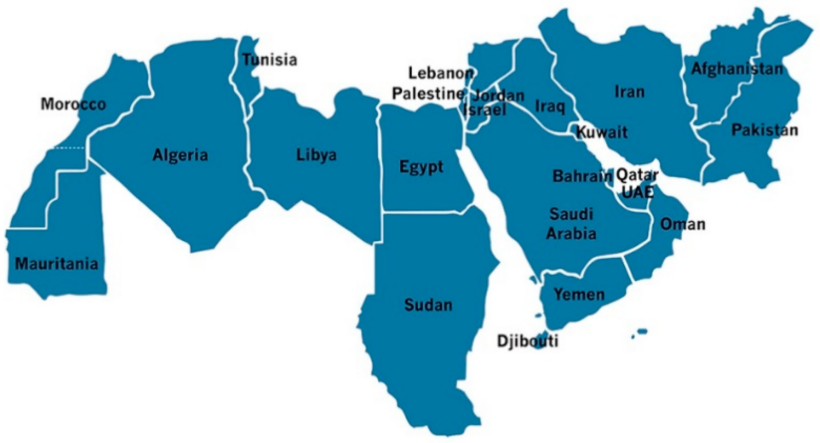A month has passed since the protests in Iran erupted calling for women’s right to bodily autonomy as well as other fundamental freedoms. Several countries issued statements towards this condemning President Raisi’s violence against protestors and supporting women in Iran. Nevertheless, the MENA region1 has been silent towards this. (1MENA: The Middle East and North Africa (MENA) is a region encompassing approximately 22 countries in the Middle East and North Africa
Most of the presidents in MENA opted for remaining silent and keeping a neutral position without intervening on what some people called “internal issues in Iran”. Some organisations from around the world, nevertheless, voiced their opinions through signing a petition that dictates some of women’s demands. The petition included some organisations from the MENA region as well as from other countries.
As someone from Tunisia, I noticed that nothing much has happened in the country. The Tunisian president Kais Saied as well as the other political leaders in the country decided not to state anything about the issue. Tunisia has been trying to maintain a neutral position; and that could probably justify the reason behind this political silence on the Iranian protests. Added to that, even though there were some people who opted for social media to express their solidarity with Iranian women, the news started fading away with time and people became more concerned with their local news. A small number of local non-governmental organisations expressed their concern or showcased their support. Apart from a small protest that happened in front of the Iranian embassy in Tunis, Tunisia, no other protests have taken place in the country. When asking some people about the reason behind this, they stated that it is an “internal issue in Iran in which Tunisia shouldn’t interfere” and “we care more about our internal issues than about what’s happening in the world”.
The situation in Morocco was slightly different. Even though there were no demonstrations in the country, people attempted to showcase their solidarity through social media. As Hajar, a Moroccan young girl, stated “there are some Moroccans who show their solidarity by commenting on Iranians’ videos. TikTok also played a big role in this. Many teenagers are supporting this cause. They are posting videos and trying to raise people’s awareness about the situation especially after the death of Nika Shakarami”. Hajar also informed us that there was a video compilation of Moroccan actors and people cutting short strands of their hair as a means to voice their position in support of Iranian women.
View this post on Instagram
As for Algeria, nothing much was noticed apart from a few posts on social media. No organisation signed the petition; the political leaders did not mention anything about the situation, and no protests were noted.
Lebanon, on the other hand, did witness some protests. According to Tamara Rasamny from L’Orient Today, “several dozen protesters gathered at the National Museum in Beirut Sunday to show solidarity with Iranian women” two weeks after the protests in Iran started.
Egypt’s president, Abdel Fattah al-Sisi, did not issue any statement about what’s happening in Iran. Therefore, nothing much was noted in the country. A young Egyptian, we’ll call Mohammed, also gave us an insight on the situation in Egypt. According to what he stated, there were several posts on social media supporting women in Iran; but no protests were noted.
Even though the world is closely following the situation in Iran, the MENA region opted for remaining neutral about it. Other than a few people and organisations who showed their support for Iranian women, the political leaders seem to have opted for a neutral position by neither condemning the Iranian government nor supporting Iranian women.






